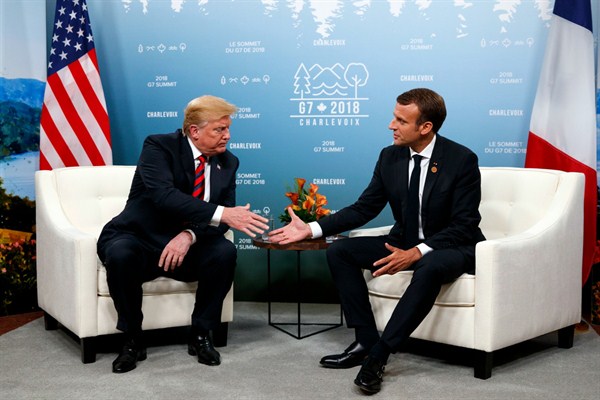This weekend, leaders from the G-7 will convene for their annual summit, this time in Biarritz, France. French President Emmanuel Macron, who is spearheading France’s G-7 presidency this year, bills the meeting as a chance to relaunch multilateralism, promote democracy and tame globalization to ensure it works for everyone. More likely, the gathering will expose the political, economic and ideological fault lines threatening Western solidarity and international cooperation.
What a difference five years makes. Back in 2014, the G-7 gained a new and unexpected lease on life after Russia seized Crimea and earned itself an ejection from what was then the G-8. The rejuvenated G-7 seemed poised to resume its onetime role as an intimate forum for policy coordination among like-minded, advanced market democracies, as distinct from the more heterogeneous and unwieldy G-20.
That rosy scenario, of course, did not play out. The intervening years would bring about the calamitous Brexit referendum and its aftermath, Donald Trump’s American presidency, and surging anti-globalist and nativist sentiments across Europe. The resulting fissures and preoccupations have further reduced the diplomatic heft of a bloc that has seen its share of global GDP decline from 70 percent three decades ago to just under 50 percent today.

